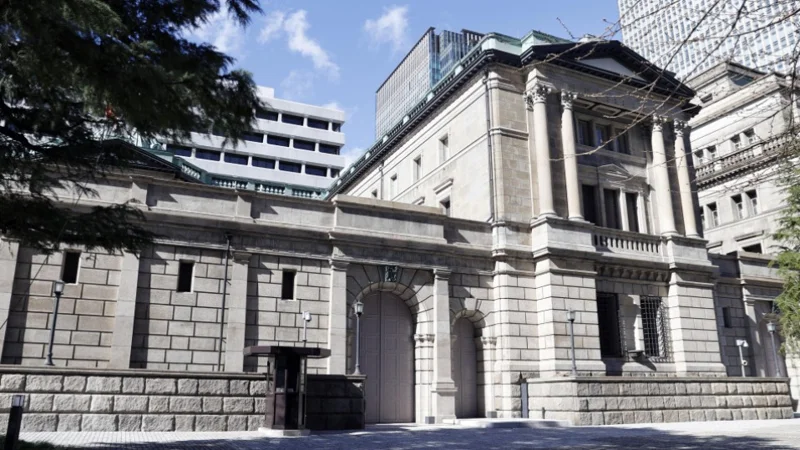BOJ to slow pace of bond-buying reduction, keeps policy rate at 0.5%
The Bank of Japan decided Tuesday to further reduce its monthly government bond purchases beyond April next year, but at a slower pace, while maintaining its interest rate, underscoring its prudent approach to normalizing monetary policy amid economic uncertainties, Kyodo reports.

Under the latest plan, the central bank will scale back its debt buying by 200 billion yen ($1.4 billion) per quarter from April 2026, down from the current 400 billion yen. The total amount of purchases will decline to about 2 trillion yen monthly in early 2027.
With U.S. President Donald Trump's higher tariffs blurring the outlook for Japan's export-oriented economy, the BOJ kept its benchmark policy rate unchanged at 0.5 percent at its two-day meeting, the third straight gathering without an adjustment.
"It is extremely uncertain how trade and other policies in each jurisdiction will evolve and how overseas economic activity and prices will react to them," the BOJ said in a statement issued after the board meeting.
The bank's decision to review the pace of paring bond-buying comes after yields on super long-term government bonds surged last month due in part to concerns about Japan's fiscal health following a series of calls from lawmakers to cut the consumption tax rate.
As long-term rates should be determined by financial markets, the BOJ said it seeks to wind down its debt purchases "in a predictable manner," signaling readiness to prevent a spike in yields and broader market turbulence.
The bank also pledged to "make nimble responses," such as expanding the amount of debt buying "in the case of a rapid rise in long-term interest rates" in a bid to stabilize the market. Bond prices and yields move in opposite directions.
After ending a decade of unorthodox monetary easing aimed at combating deflation, or falling prices, including massive asset purchases, the BOJ raised interest rates in March last year for the first time in 17 years.
As part of its policy normalization efforts, the central bank decided in July to introduce a quantitative tightening program through March 2026 to trim its bloated balance sheet, before lifting its key interest rate again in January.
The BOJ reiterated it will increase interest rates if the economy and prices move as expected, but added it is carefully exploring the timing of the next hike after downgrading its growth and inflation forecasts at the policy meeting that ended on May 1.
Hours before the policy meeting concluded, Japanese Prime Minister Shigeru Ishiba and Trump remained at odds over tariff policies during their talks on the sidelines of the Group of Seven summit in Canada, failing to ease worries about trade.
As reported previously, Kazakhstan’s National Bank holds the base rate at 16.5%.
